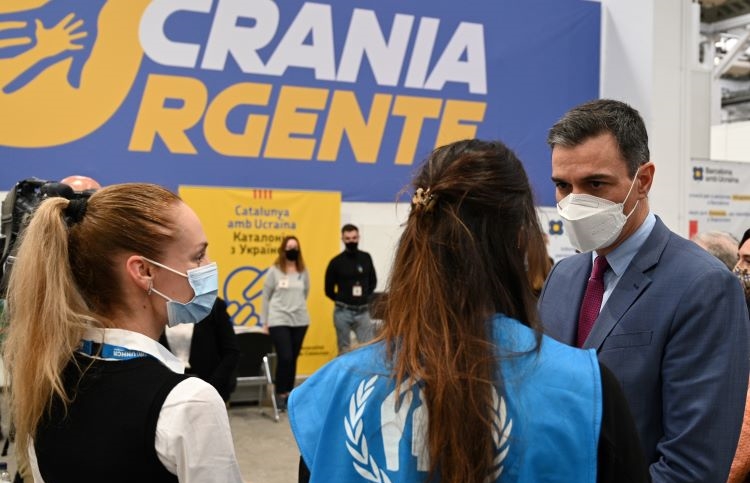The Diplomat
Spaniards remain sharply divided over the government’s decision to increase defense spending in response to the Russian invasion of Ukraine and to move towards the 2% committed to NATO, the latest survey on current affairs by the Sociological Research Center (CIS), presented yesterday, reveals.
The survey, carried out in March among more than 2,400 Spanish nationals, of both sexes and over 18 years of age, indicates that 47.3% of Spaniards consider that “Spain should increase its defense spending in order to be prepared for future threats”. Contrary to this opinion, 34.4% answered that “it should not increase its defense spending” and 12.2% even considered that “it should decrease”. 6.1% do not know or do not answer.
Predictably, responses on this question vary considerably depending on the political sympathies of the respondents. Specifically, voters of right-wing formations are clearly in favor of increasing defense spending (76.4% of PP voters and 81.7% of Vox). The budget increase is also supported by 43% of PSOE supporters (main partner of the Government) and only 16% of Unidas Podemos voters (minority partner).
As for those who oppose the spending increase, PSOE supporters represent 41%, those of Unidas Podemos 53.5%, PP supporters 16.4% and Vox voters 13.8%. Finally, among the supporters of the decrease in military spending, the voters of Unidas Podemos stand out (27.2%), followed by PSOE (nine percent), PP (4.3%) and Vox (1.2%).
In mid-March, the President of the Government, Pedro Sánchez, announced the Executive’s intention to increase defense spending to 2% of GDP. The announcement, which took place a few days after the informal European Council of Versailles, convened by the French Presidency of the EU and in which the European leaders urged a “substantial” increase in defense spending in the face of the new security challenges arising from the Russian invasion of Ukraine, generated the opposition of UNO Podemos and most of Sánchez’s parliamentary supporters. Not even the second vice-president, Yolanda Díaz, who dissociated herself from the rejection of ministers Ione Belarra and Irene Montero regarding the shipment of arms to Ukraine, publicly supported the president’s position.
Last March 30, Sánchez reiterated before the plenary session of the Congress of Deputies that “the defense of peace requires adequate resources”, especially after the outbreak of war in Ukraine. Therefore, taking into account Spain’s commitment as a “member of the European Union and also of NATO”, our country has the “duty” to “achieve in defense that 2% of our Gross Domestic Product over the next few years”, he continued. “I am not talking about a sudden increase, because the Ministry itself would not have the capacity to absorb all those resources and financial capabilities. Therefore, I am not talking about a sudden increase, but a progressive one,” he specified.
According to NATO’s latest annual report for 2021, recently presented in Brussels, Spain is, with 1.03% of GDP, the penultimate country in the Alliance in terms of defense spending, only ahead of Luxembourg. Despite this, the percentage allocated by Spain in 2021 has been the highest since 2014, when only 0.92% was devoted to defense. Compared to 2020, the defense budget in Spain increased by 6.94%, well above the 1.8% increase of the NATO total and even the 3.11% increase of the total of the European allies and Canada (in the United States, the increase was 1.23%).







